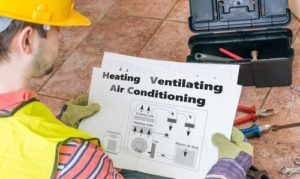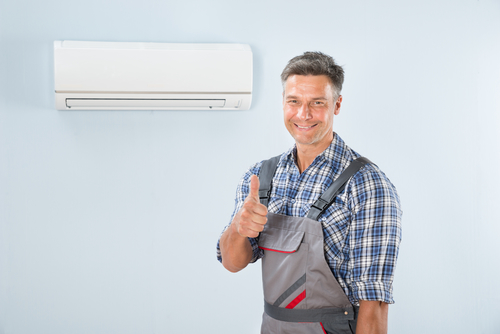 So, you took the plunge a while ago and had central heating and air conditioning installed in your building. You’ve had a few blessedly cool summers, and some cozy warm winters in between, but now you’re starting to notice that your system doesn’t run the way it used to and you aren’t sure why. More to the point, you’re not sure how you should go about fixing the problem. It’s probably occurred to you to hire an HVAC technician, but maybe you aren’t sure exactly what to look for in a service professional. Many people might be available to work on your system, but you don’t want just anybody—you want an expert who can put your system back in the condition it was in when you first installed it. That being the case, you might need some hot tips for finding an HVAC service expert.
So, you took the plunge a while ago and had central heating and air conditioning installed in your building. You’ve had a few blessedly cool summers, and some cozy warm winters in between, but now you’re starting to notice that your system doesn’t run the way it used to and you aren’t sure why. More to the point, you’re not sure how you should go about fixing the problem. It’s probably occurred to you to hire an HVAC technician, but maybe you aren’t sure exactly what to look for in a service professional. Many people might be available to work on your system, but you don’t want just anybody—you want an expert who can put your system back in the condition it was in when you first installed it. That being the case, you might need some hot tips for finding an HVAC service expert.
So, what makes someone an HVAC service expert, and how do you secure their air-conditioning-services-in-santa-rosa? Don’t worry; we’re here to teach you. With our help, you’ll soon learn practically everything there is to know about the factors that separate a high-quality service technician from an ordinary one, and how you can approach quality contractors to work on your heating and cooling systems.
What to Look for in an HVAC Service Technician
HVAC service technicians are common in most major American cities but don’t make the mistake of assuming that someone is qualified just because they’re running a business. The law differs from one state to another, but most of them have strict stipulations that govern the work licensed and non-licensed contractors are allowed to undertake. Yes, you read that correctly: non-licensed contractors are still permitted to operate in many states, including California. The question is, why on earth would you ever choose one?
The answer to this issue is pretty simple: many people choose unlicensed contractors because their air-conditioning-services-in-santa-rosa tend to be cheaper than those offered by licensed ones. In fact, some states prohibit unlicensed contractors from working on jobs that cost more than a few hundred dollars, which means that some people seek them out for smaller jobs. That might seem like a good way to save money, but hang on—you have to think about more than just the short-term costs of your contractor’s work. Remember that unlicensed contractors are unlicensed for a reason. In most cases, that reason is that they aren’t experienced enough to qualify for a license yet.

Now, there’s nothing wrong with learning through hands-on experience—but it’s a different story when someone’s lack of experience can affect a paying customer. More to the point: you don’t want to be that paying customer. You want to spend your money on technicians who are sure of themselves and comfortable with their work. In almost every case, that means seeking out a licensed contractor, even for smaller jobs and routine service calls. A contractor who has put in the time required to earn a license (a minimum of four years in California) will be more familiar with the technology in your system, and able to catch things less experienced professionals might miss. Thoroughness can prevent a small irregularity from flying under the radar during a service call, and evolving into a much more severe problem over time.
The license isn’t the only thing that defines an HVAC service expert though. There are other factors endemic to a consummate professional in this business. Make sure to seek out a contractor who communicates clearly and knows their terminology. Clear and detailed communication signifies not only a level of honesty that should always be present in someone you pay to work in your home—it also lets you know that they make a habit of refreshing their industry related knowledge on a regular basis.
For instance, if you’re talking to a contractor about the size of your AC, make sure you ask about its Btu and EER ratings. Btu are British thermal units and they’re used to measure the amount of thermal energy your system uses to cool a given space. EER stands for Energy Efficiency Ratio and gives an indication of how efficiently your system uses the power it draws. If your contractor seems hesitant to discuss these features in detail, their knowledge may not be as fresh as they say it is.
The best way to make sure you’re dealing with an HVAC service expert is to become a bit of an expert yourself. While you might not be able to perform a Manual J load calculation yourself, you should at least know what it is and that your technician can do it properly. Once you’re confident in the abilities of your technician, get a quote from them, measure it against other experienced professionals in your area, and you should be well on your way to HVAC service you can trust. Follow these hot tips for finding an HVAC service expert every time you need to do so, and your troubles should be over quickly.


